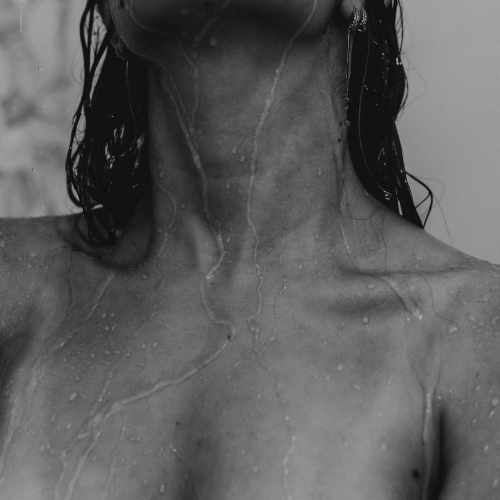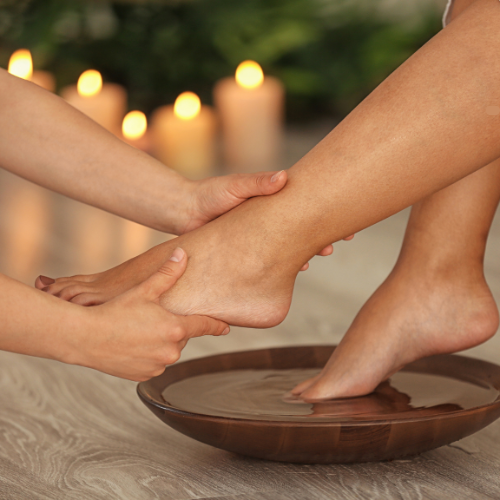What Happens If I Don’t Shower After an Epsom Salt Bath?

Epsom salt baths can work wonders for your muscles and skin, but you might wonder whether you need to shower afterward. Let’s talk about why a quick rinse might be a good idea and what happens if you skip it.
The Benefits of Epsom Salt Baths
First, it’s important to understand why Epsom salt baths are so popular. Epsom salt, or magnesium sulfate, dissolves in water and releases magnesium and sulfate ions. These minerals are believed to help with:
- Soothing sore muscles
- Reducing inflammation
- Easing stress
- Detoxifying the skin
When you soak in an Epsom salt bath, the magnesium is absorbed through your skin, which helps relax muscles and relieve tension. The detoxifying properties also help to draw out impurities from your skin.
Why You Should Consider Rinsing After
While it’s not harmful to skip a shower after an Epsom salt bath, there are a few reasons why you might want to rinse off, especially if you have sensitive skin or if you used a higher concentration of salt:
- Salt Residue on the Skin
Epsom salt can leave a fine salty residue on your skin, which may feel gritty or sticky as it dries. For some people, this residue can be slightly irritating, especially if you have sensitive or dry skin. A quick rinse with warm water can help wash away any leftover salt, leaving your skin feeling smooth and refreshed.
- Preventing Skin Dryness
While Epsom salt is great for soothing muscles, it can be a bit drying for the skin. If you don’t shower after your bath, the salt residue can continue to draw moisture out of your skin, potentially leaving it dry or flaky. A gentle rinse, followed by a good moisturizer, can help lock in moisture and keep your skin soft.
- Avoiding Product Build-Up
If you’ve added essential oils, bath bombs, or other bath products to your Epsom salt soak, there may be oils or additives left on your skin. While these can be beneficial, some people prefer to rinse off to avoid any lingering product build-up, especially if it feels heavy or greasy on the skin.
What Happens If You Don’t Shower?
So, what actually happens if you don’t shower after your Epsom salt bath? Let’s break it down:
- Mild Skin Irritation
For most people, nothing serious will happen if you skip the shower. However, if you have sensitive skin, leaving the salt on your skin could cause some mild irritation. This is especially true if you soaked for a long time or used a large amount of Epsom salt.
If your skin tends to get irritated easily, the salt residue might make it feel tight, itchy, or slightly inflamed. This is more likely to happen if you’re already prone to dryness or conditions like eczema.
- Lingering Salt Residue
Without rinsing off, you’ll likely feel a slight residue of salt on your skin. For some, this is no big deal—it can be washed away later. For others, especially if you’re heading to bed after your bath, the salt might feel uncomfortable as it dries. The residue could also get on your sheets or clothes, potentially irritating your skin overnight.
Imagine stepping out of the bath and drying off, only to find your skin feels a bit gritty or sticky. That’s the salt residue. While it’s not harmful, it might not feel as pleasant as freshly rinsed skin.
- Potential for Dehydration
Epsom salt baths have detoxifying properties, meaning they can help draw out toxins from your body, but they can also pull moisture from your skin. If you don’t shower and moisturize afterward, there’s a chance you could experience some minor dehydration on your skin. To combat this, make sure to drink plenty of water before and after your bath and moisturize your skin right after drying off.
Think of the salt as a sponge—when left on the skin, it can continue to pull moisture out. If you don’t rinse off and hydrate, your skin might feel tighter or drier than usual.
- Scent Retention
If you’ve added scented oils or bath products, not rinsing off might leave those scents lingering on your skin, which could be a nice bonus if you love the smell. However, for some, the scent might become overpowering over time, especially if you’re using concentrated essential oils. A light rinse can help balance the fragrance, so it’s not too intense.
When Skipping the Shower is Fine
There are times when skipping the shower won’t cause any issues, especially if:
- You have normal skin that isn’t easily irritated or dried out
- You used a smaller amount of Epsom salt (like 1-2 cups per bath)
- You didn’t add a lot of extra products to your bath that might leave residue behind
- You plan to apply a moisturizer right after drying off
In these cases, not showering might be totally fine, and you can enjoy the lingering effects of the Epsom salt for a bit longer. Just be sure to listen to your body—if your skin feels uncomfortable or tight, a quick rinse might be worth it.
How to Get the Most Out of Your Epsom Salt Bath
To maximize the benefits of your Epsom salt bath and avoid any discomfort from not rinsing off, follow these tips:
- Use the Right Amount of Salt: Stick to the recommended 1-2 cups of Epsom salt for a standard-sized tub. This amount will give you muscle-relaxing benefits without overloading your skin with salt.
- Limit Your Soak Time: Aim for a soak time of about 15-20 minutes. This is long enough for your skin to absorb the magnesium without over-drying or irritating your skin.
- Hydrate and Moisturize: Drink plenty of water before and after your bath to stay hydrated, and apply a moisturizer immediately after drying off to lock in moisture.
- Rinse If You’re Sensitive: If you have sensitive skin, a light rinse with warm water can help prevent irritation or dryness, especially if you’re prone to eczema or other skin conditions.
Enjoy your soak!


